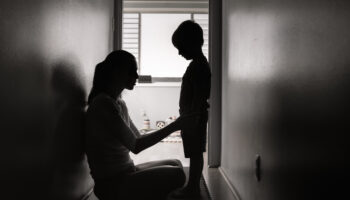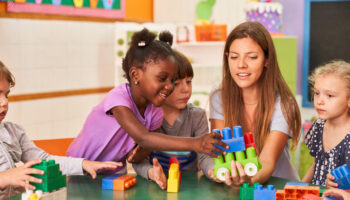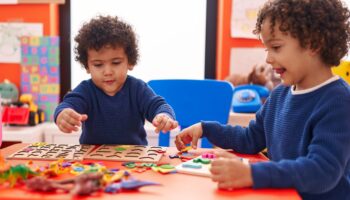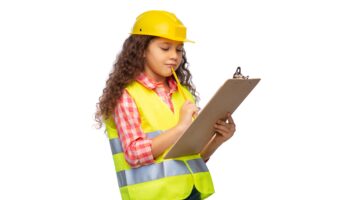Regina Wright
Close your eyes and imagine when you were a child. What was your favorite toy? I’m sure you would probably name a familiar toy that children still enjoy. Walk into any early childhood or school-age classroom and you’ll find a child playing with your favorite game, pretending to be your childhood superhero, or even reading a book you read over and over again.
We take it for granted when children play. Parents often ask, “Why are they playing all day? What could my child possibly be learning?” When children play they explore and learn so much about themselves and the world around them. Through play children learn many things. That’s why play is so important.
Sand and water play can be an early introduction into science and math. They learn that water is fluid and not solid and that it can be measured in differently sized containers. Playing with art materials can stimulate creativity, imagination, and expression of feelings. Building with blocks, puzzles and other manipulatives of differing shapes and sizes can help children develop logic, problem solving, and reasoning. Active play strengthens flexibility and coordination, and helps to develop the body, as well as self-esteem and confidence. Board games help children with social skills, such as turn taking, sharing, and getting along with others. Music builds rhythm and listening skills. Dramatic play is essential to a child’s social and emotional development because it allows children to act out social situations before they happen. When engaged in pretend play, children begin to see life through a different lens and they are able to challenge themselves through trial and error. By exposing children to books, they are able to experience new possibilities, travel, research and dream without ever catching a plane.
Through play, children are allowed to become whatever they choose and then turn around and be something else in the blink of an eye. Play is a child’s work, so let the children play!




